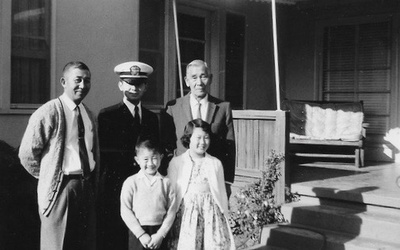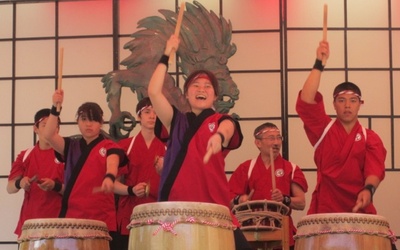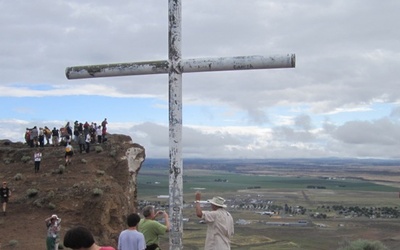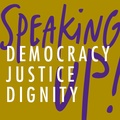
Stanley N. Shikuma
Stanley N Shikuma es escritor, artista de taiko (tambor japonés) y activista comunitario. Actúa con Seattle Kokon Taiko y dirige Kaze Daiko (un grupo juvenil de taiko), y también ha sido intérprete, compositor y percusionista en nueva ópera, bandas sonoras de películas mudas, danza Butoh y teatro de marionetas. Como activista social, Stan escribe y da conferencias sobre derechos civiles, historia japonesa americana y Taiko. Las afiliaciones incluyen el trabajo con Tule Lake Pilgrimage, la Liga de Ciudadanos Japonés-Americanos (JACL), el Comité de Veteranos Nisei de Seattle y la Fundación NVC, la Alianza Laboral Estadounidense de Asia y el Pacífico (APALA), los Grupos Regionales de Taiko en Seattle y la Alianza Comunitaria de Taiko.
Actualizado en junio de 2019
Historias de Este Autor
Sansei: sobre ser japonés-estadounidense en tiempos de crisis
10 de julio de 2019 • Stanley N. Shikuma
[En abril de 2017 me pidieron que hablara sobre lo que significa para mí mi identidad japonés-estadounidense y cómo eso influye en mis valores de justicia social, particularmente en relación con mi condición de “tercera generación” (Sansei). Esto ocurrió poco después de que los tribunales bloquearan el segundo intento de prohibición musulmana, pero antes de que se confirmara el tercer intento. También fue un año antes de la política de “tolerancia cero” adoptada por el Departamento de Justicia que precipitó …
Taiko as Folklore
19 de septiembre de 2013 • Stanley N. Shikuma
Since ancient times, taiko has played an important role in the folklore of Japan. Taiko appear in many Japanese myths and legends, and it is the principal instrument for the folk music of that island nation. In recent times, taiko has taken root in North America, largely among the third and fourth generation descendants of Japanese immigrants (Sansei and Yonsei). Can folklore survive and is it still useful to modern day Americans? Is taiko being used to develop or create a …
Tule Lake Segregation Center: Misperceptions and Misnomers Surrounding Resistance to JA Incarceration - Part 2
29 de agosto de 2013 • Stanley N. Shikuma
Read Part 1 >>3. Internee or Incarceree: Say What You Mean In the 1960s and 1970s, an attempt was made to move away from the government’s WWII era euphemisms of “evacuation” and “relocation”, which resulted in widespread use of the terms “internment” and “internment camp” in their place. Most people at that time were not aware of the Department of Justice camps and the specific legal definition of internment and internee. Current scholarship on the topic shows the widespread use …
Tule Lake Segregation Center: Misperceptions and Misnomers Surrounding Resistance to JA Incarceration - Part 1
28 de agosto de 2013 • Stanley N. Shikuma
Words can reveal truth or hide it. It is one thing when a poet employs unusual and imaginative phrases for artistic effect but quite another when the government uses euphemisms—the President, Congress, the courts, the army, the police—for it is certain that they do so to hide intent, deceive people, distort reality, and avoid responsibility. If the media passively accept these verbal distortions (or act to amplify them) public accountability becomes virtually impossible. And if corporate interests benefit from the …






